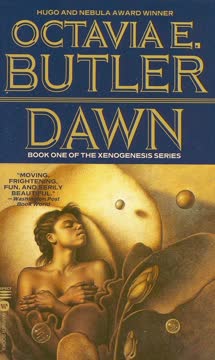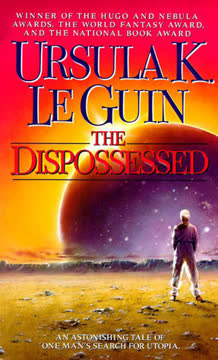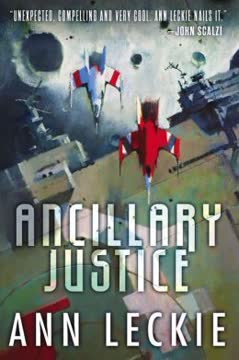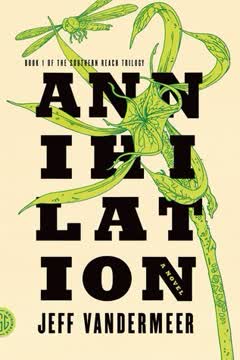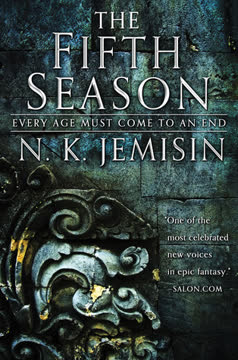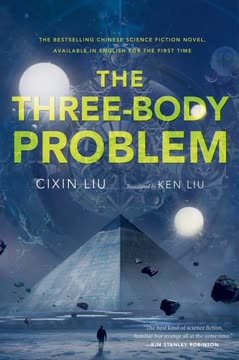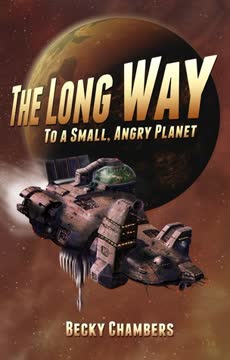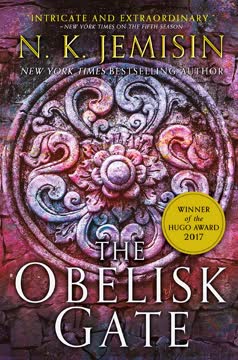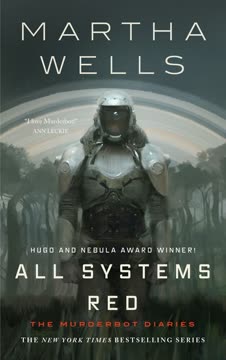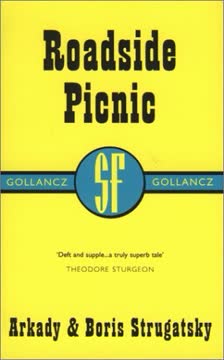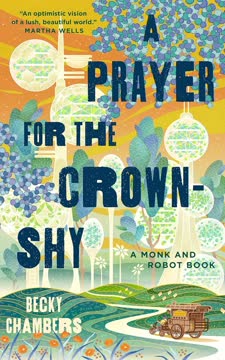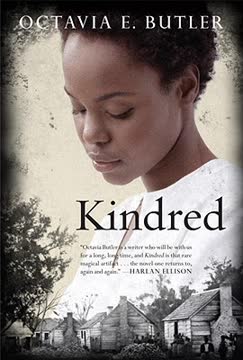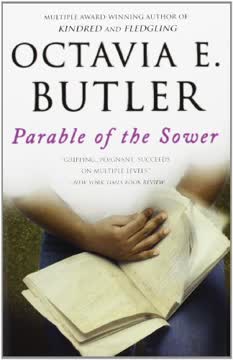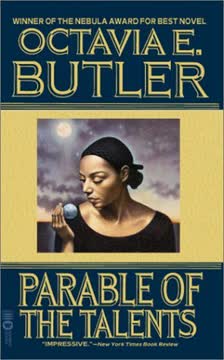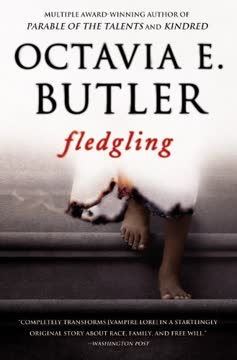Plot Summary
Awakening in Alien Captivity
Lilith Iyapo wakes in a featureless, windowless room, disoriented and terrified. She is repeatedly put to sleep and reawakened, subjected to endless questions by unseen captors. Her memories of a nuclear war and the loss of her family haunt her. She realizes she is a prisoner, but her captors are not human. The isolation and uncertainty erode her sense of self, but she clings to her sanity by exercising, remembering her past, and trying to make sense of her captivity. Eventually, she is confronted by her captor, Jdahya, who reveals himself as an Oankali—an alien with sensory tentacles instead of hair, nose, or ears. Lilith's fear is visceral, but she is forced to accept that her world has changed forever.
The Medusa's Bargain
Jdahya explains that the Oankali have rescued the last surviving humans after humanity's self-destruction. The Oankali have been orbiting Earth for centuries, healing the planet and studying humans. They offer Lilith and her species a chance to return to Earth, but only if humanity agrees to a "trade." The Oankali are gene traders, seeking to merge their DNA with that of other species to ensure mutual survival and evolution. Lilith is horrified to learn that the Oankali intend to alter humanity at the genetic level, making future generations hybrids. The Oankali's motives are both compassionate and self-serving, and Lilith is caught between gratitude for survival and revulsion at the loss of human autonomy.
Learning the Oankali
Lilith is introduced to Jdahya's family, including the ooloi Kahguyaht and the child Nikanj. She learns about Oankali biology, their three sexes (male, female, ooloi), and their living ship. The Oankali's technology is biological, their homes and tools grown rather than built. Lilith is both fascinated and repelled, struggling to overcome her xenophobia. She is forced to accept Oankali medical intervention, which heals her cancer and enhances her memory and strength. The ooloi's ability to manipulate genes and heal is both miraculous and invasive. Lilith's relationship with Nikanj, the ooloi child, becomes central as they teach each other about their respective species.
First Human Connections
Lilith is eventually tasked with Awakening other humans from suspended animation. She must choose who to Awaken, balancing the need for allies with the risk of violence. The first people she revives are wary, traumatized, and suspicious of her authority and the Oankali's intentions. Some, like Tate and Joseph, become her confidants, while others, like Curt and Peter, are openly hostile. Lilith must mediate between the Oankali and the humans, teaching survival skills and managing group dynamics. The humans' disbelief, fear, and anger threaten to undermine any hope of cooperation.
The Price of Survival
As Lilith's group grows, tensions mount. The Oankali reveal that humans will not be allowed to reproduce without Oankali intervention; all future children will be hybrids. The humans are horrified, feeling their species is being extinguished. Some, like Joseph, try to adapt, while others plot rebellion or escape. The Oankali's control is total—they can heal, enhance, or disable any human at will. Lilith is caught between her loyalty to her species and her dependence on the Oankali, especially Nikanj, who becomes her closest companion and, eventually, her mate in the Oankali sense.
Family Among Strangers
Lilith's relationship with Nikanj deepens, blurring the lines between captor and companion. She becomes part of an Oankali family, learning their ways and teaching them about humanity. The ooloi's ability to create pleasure and intimacy through neural links is both seductive and unsettling. Lilith's bond with Joseph grows, but is complicated by Nikanj's presence. The Oankali's manipulation of emotions and biology creates a new kind of family, one that is neither fully human nor fully alien. Lilith's authority among the humans is both a burden and a source of isolation.
The Ooloi's Touch
Nikanj matures, gaining the full abilities of an ooloi. It can now manipulate human and Oankali genes with precision, creating new life forms. Lilith is both subject and partner in these experiments, her body altered to enhance memory, strength, and healing. The ooloi's touch creates a three-way intimacy between Lilith, Joseph, and Nikanj, dissolving traditional boundaries of sex and identity. The pleasure and connection are profound, but the loss of autonomy is troubling. The Oankali's power to shape life is both a gift and a violation.
Building Trust, Facing Doubt
As more humans are Awakened, divisions deepen. Some accept Lilith's leadership and the Oankali's terms, while others, led by Peter and Curt, resist violently. The Oankali's refusal to allow writing materials or access to human records fuels paranoia. Lilith's enhanced abilities make her suspect in the eyes of her peers. Attempts at escape and rebellion are met with swift, non-lethal force by the Oankali. The humans' inability to unite or trust one another mirrors the flaws that led to their near-extinction. Lilith's role as mediator becomes increasingly precarious.
The Human Experiment
The Oankali move the humans to a vast, living simulation of Earth's tropical forest—the Training Floor. Here, they must learn to survive without technology, relying on skills taught by Lilith and the Oankali. The environment is both beautiful and dangerous, filled with genetically engineered plants and animals. The Oankali observe, intervening only to prevent fatal violence. The humans' attempts to build community are undermined by old prejudices, fear, and the trauma of captivity. Some attempt to escape, but the Oankali's control is absolute.
Betrayal and Violence
Tensions erupt into violence as some humans, led by Curt, attack the Oankali and their own kind. Joseph, Lilith's lover, is killed in a brutal act of mistaken identity—his Oankali-enhanced healing is seen as proof he is no longer human. The Oankali respond with restraint, subduing the attackers and exiling them from the chance to return to Earth. Lilith is devastated by Joseph's death and the betrayal of her fellow humans. The Oankali's experiment in coexistence seems doomed by humanity's hierarchical instincts and inability to adapt.
The Training Floor
The remaining humans are given tools and taught to survive independently. Some form new groups and attempt to escape, but the Oankali allow them to fail or succeed on their own. The Training Floor becomes a crucible, testing the limits of human adaptability and cooperation. Lilith, isolated by grief and suspicion, continues to teach and support those who seek her help. The Oankali prepare to return the survivors to Earth, but only on their own terms—no unaltered human children will be born.
Escape and Consequence
As the humans are released onto Earth, they are told they can return to the Oankali if they wish, but they will not be able to reproduce without Oankali intervention. Some choose to run, seeking freedom even at the cost of extinction. Others, recognizing their dependence, remain with the Oankali. Lilith is left behind, pregnant with a hybrid child, her fate tied to the future of both species. The Oankali's experiment continues, but the cost to human identity and autonomy is profound.
Loss and Transformation
Lilith mourns Joseph and the loss of her people's future. She is both mother and outcast, carrying a child who will be neither fully human nor fully Oankali. The Oankali's vision of a new, hybrid species is both hope and horror. Lilith's acceptance of her role is reluctant, shaped by necessity and the absence of alternatives. The Oankali's promise of a better future is shadowed by the erasure of the past.
The New Beginning
Lilith gives birth to Akin, a child who appears human but possesses Oankali senses and abilities. The birth is both a miracle and a symbol of the irreversible change wrought by the Oankali. Lilith's love for her child is real, but complicated by the knowledge that he is the first of a new species. The Oankali celebrate the success of their trade, while Lilith grieves for what has been lost. The future is uncertain, shaped by forces beyond any individual's control.
A Child of Two Worlds
Akin grows quickly, learning from both his human mother and Oankali family. He is a bridge between species, embodying the potential for understanding and coexistence. His existence challenges the boundaries of identity, loyalty, and love. Through Akin, the possibility of a new kind of humanity emerges—one that may transcend the flaws that led to destruction, but at the cost of everything that was once familiar. The story ends with the promise and peril of transformation, as the next generation steps into an unknown future.
Characters
Lilith Iyapo
Lilith is a Black woman, a survivor of nuclear apocalypse, and the protagonist. She is chosen by the Oankali for her adaptability, intelligence, and resilience. Lilith is deeply traumatized by the loss of her family and the destruction of Earth, but she clings to hope and agency. Her role as mediator between humans and Oankali is both a burden and a source of isolation. She is enhanced by the Oankali, making her stronger and more capable, but also suspect in the eyes of her peers. Lilith's psychological journey is one of grief, adaptation, and reluctant acceptance of her role in the creation of a new species. Her relationship with Nikanj and Joseph complicates her identity, blurring the lines between victim, collaborator, and mother of the future.
Nikanj
Nikanj is an ooloi, the third sex of the Oankali, capable of manipulating genes and healing. As a child, Nikanj forms a unique bond with Lilith, learning from her and teaching her in turn. Upon maturing, Nikanj becomes Lilith's mate, facilitating intimacy and reproduction between her and Joseph. Nikanj is both compassionate and alien, driven by the Oankali imperative to trade genes and create hybrids. Its perspective is shaped by a deep curiosity and a desire for connection, but it cannot fully grasp human autonomy or resistance. Nikanj's development mirrors the story's central tension between change and preservation.
Jdahya
Jdahya is the first Oankali Lilith meets, serving as her guide and teacher. He is patient, disciplined, and deeply committed to the Oankali mission. Jdahya's role is to acclimate Lilith to the reality of her situation and to the Oankali's plans. He is both empathetic and implacable, unable to offer Lilith true choice. Jdahya's interactions with Lilith set the tone for the complex, often fraught relationship between the two species.
Kahguyaht
Kahguyaht is an adult ooloi, responsible for Lilith's medical care and genetic enhancement. It is authoritative, sometimes condescending, and represents the Oankali's collective will. Kahguyaht's interactions with Lilith are marked by a blend of clinical detachment and genuine concern. It embodies the Oankali's belief in the necessity of their intervention, even as it struggles to understand human resistance.
Joseph Shing
Joseph is a Canadian-Chinese engineer, one of the first humans Lilith Awakes. He is adaptable, intelligent, and becomes Lilith's confidant and lover. Joseph's willingness to engage with the Oankali and his relationship with Lilith make him a target for suspicion and violence. His tragic death at the hands of other humans underscores the destructive potential of fear and hierarchy.
Tate Marah
Tate is a strong-willed, adaptable woman who becomes one of Lilith's first allies. She is skeptical, pragmatic, and skilled at navigating group dynamics. Tate's loyalty is tested by the pressures of captivity and the Oankali's manipulations. Her eventual estrangement from Lilith reflects the corrosive effects of suspicion and trauma.
Curt Loehr
Curt is a former police officer, physically imposing and quick to anger. He embodies the human tendency toward hierarchy, aggression, and resistance to change. Curt's leadership of a violent rebellion and his murder of Joseph highlight the dangers of unchecked fear and the inability to adapt.
Peter Van Weerden
Peter is a vocal skeptic and troublemaker, leading opposition to Lilith and the Oankali. His paranoia and resentment fuel division and violence. Peter's eventual death at the hands of an ooloi is both a consequence of his actions and a commentary on the limits of resistance.
Ahajas and Dichaan
Ahajas and Dichaan (female) and Dichaan (male) are Nikanj's Oankali parents. They provide support, guidance, and stability within the Oankali family structure. Their interactions with Lilith and the humans illustrate the complexities of cross-species relationships and the Oankali's commitment to the trade.
Akin
Akin is Lilith and Joseph's son, the first male construct born to a human mother. He embodies the potential for true synthesis between human and Oankali. Akin's rapid development, unique abilities, and dual heritage make him both a symbol of hope and a source of anxiety. His existence challenges the boundaries of identity and the meaning of humanity.
Plot Devices
Alien Contact and Captivity
The narrative is structured around Lilith's awakening in captivity and her gradual realization of the Oankali's plans. The use of isolation, repeated awakenings, and controlled environments heightens the sense of dislocation and powerlessness. The Oankali's living ship and biological technology serve as constant reminders of their difference and control.
Genetic Trade and Transformation
The central plot device is the Oankali's imperative to merge with other species. Their ability to manipulate genes, heal, and create hybrids is both miraculous and invasive. The trade is presented as both salvation and erasure, forcing characters to confront the meaning of identity, autonomy, and survival.
Hierarchy and Human Nature
The Oankali identify humanity's hierarchical instincts as the root of its self-destruction. This diagnosis shapes their approach to the trade and their interactions with humans. The narrative uses group dynamics, rebellion, and violence to illustrate the persistence of hierarchy and its consequences.
Intimacy and Consent
The ooloi's ability to create neural links and manipulate pleasure dissolves traditional boundaries of sex, identity, and consent. The resulting intimacy is both profound and unsettling, raising questions about agency and the nature of love.
Foreshadowing and Cyclical Structure
The narrative is cyclical, with repeated awakenings, betrayals, and attempts at adaptation. Each cycle brings new challenges and deeper transformations, culminating in the birth of a hybrid child and the promise of a new beginning.
Analysis
Dawn is a profound meditation on the costs and possibilities of survival, transformation, and coexistence. Octavia E. Butler uses the framework of alien contact and captivity to interrogate the deepest flaws and strengths of humanity—our intelligence, our capacity for love, and our destructive hierarchical instincts. The Oankali's gene trade is both a metaphor for and a literal enactment of change, forcing characters to confront the loss of autonomy, the meaning of identity, and the ethics of consent. Lilith's journey from captive to reluctant mother of a new species embodies the tension between adaptation and resistance, hope and grief. The novel's lessons are both cautionary and aspirational: true survival may require the surrender of old certainties, the embrace of difference, and the willingness to become something new. Yet Butler never lets us forget the cost—what is lost, who is left behind, and the enduring ache of what it means to be human.
Last updated:
FAQ
Synopsis & Basic Details
What is Dawn about?
- Humanity's Last Hope: Dawn introduces Lilith Iyapo, a survivor of a devastating nuclear war, who awakens to find herself held captive by the Oankali, an alien species. They reveal that humanity has nearly destroyed itself, and they have saved the last remnants, including Earth itself, for a "trade."
- Genetic Imperative: The Oankali are "gene traders," driven by a biological imperative to merge their DNA with other species, creating hybrids to ensure mutual evolution and survival. They offer humanity a chance to return to a restored Earth, but only if they agree to this genetic transformation, fundamentally altering what it means to be human.
- Reluctant Leadership: Lilith is chosen by the Oankali to be the "parent" of the first human-Oankali hybrid community. She must awaken other human survivors, teach them Oankali ways, and prepare them for the genetic trade and resettlement on Earth, navigating their fear, anger, and deep-seated resistance.
Why should I read Dawn?
- Profound Thematic Exploration: Dawn delves into complex themes of survival, identity, consent, and the nature of humanity, challenging readers to question what defines a species and the ethics of intervention, making it a powerful work of speculative fiction analysis.
- Unique Alien Perspective: Octavia E. Butler crafts one of science fiction's most original alien species, the Oankali, whose biological technology, three sexes, and "gene trade" philosophy offer a truly alien yet compelling worldview, providing a fresh take on alien contact narratives.
- Psychological Depth: The novel offers an intense psychological journey through Lilith's eyes, exploring her trauma, xenophobia, and reluctant adaptation, forcing readers to confront uncomfortable truths about human nature and the compromises necessary for survival.
What is the background of Dawn?
- Post-Apocalyptic Earth: The story is set after a global nuclear war, initiated by humanity's own "hierarchical" and self-destructive tendencies, has rendered Earth uninhabitable. This catastrophic event serves as the catalyst for the Oankali's intervention, highlighting humanity's inherent flaws.
- Biological Technology: The Oankali operate on a vast, living, sentient ship, and their technology is entirely biological. Their tools, homes, and even their suspended animation chambers are grown, not built, emphasizing their deep connection to life and their unique approach to engineering and survival.
- Oankali Evolutionary Drive: The Oankali are a nomadic species driven by a biological imperative to "trade" genetic material with other intelligent species they encounter. This isn't for conquest, but for their own evolutionary renewal, preventing stagnation and specialization, a core concept in Dawn themes.
What are the most memorable quotes in Dawn?
- "You are intelligent. That's the newer of the two characteristics, and the one you might have put to work to save yourselves. You are potentially one of the most intelligent species we've found, though your focus is different from ours. Still, you had a good start in the life sciences, and even in genetics.": Jdahya's blunt assessment of humanity's intelligence, juxtaposed with its fatal flaw, encapsulates the Oankali's core understanding of human nature and the central conflict of the novel.
- "You have a mismatched pair of genetic characteristics. Either alone would have been useful, would have aided the survival of your species. But the two together are lethal. It was only a matter of time before they destroyed you.": This quote, also from Jdahya, directly states the Oankali's diagnosis of humanity's self-destructive nature, linking intelligence with hierarchy as a "cancer" that led to war, a key element in Dawn analysis.
- "We revere life. We had to be certain we had found ways for you to live with the partnership, not simply to die of it.": Nikanj's explanation to Joseph highlights the Oankali's perspective on their "trade" as a form of salvation, even as it involves profound transformation, underscoring the alien morality at play in Dawn explained.
What writing style, narrative choices, and literary techniques does Octavia E. Butler use?
- First-Person Limited Perspective: Butler primarily uses Lilith's first-person perspective, immersing the reader in her confusion, fear, and gradual understanding. This narrative choice emphasizes the psychological impact of alien contact and the struggle for agency, central to Lilith Iyapo's motivations.
- Sparse, Direct Prose: Butler's writing is characterized by its clarity and directness, avoiding flowery language to deliver powerful emotional and intellectual impact. This stark style enhances the unsettling atmosphere and the brutal honesty of the Oankali's pronouncements, contributing to the overall Dawn literary analysis.
- Biological Metaphors and Symbolism: The novel is rich with biological metaphors, from the Oankali's "gene trade" to the living ship and the "cancer" of human hierarchy. These elements serve as potent symbols for themes of evolution, adaptation, and the interconnectedness of life, deepening the symbolism in Dawn.
Hidden Details & Subtle Connections
What are some minor details that add significant meaning?
- The "Velcro" Clothing: Lilith's observation that her alien clothing "adhered to itself and stayed closed when she closed it, but opened readily enough when she pulled the two front panels apart. The way they came apart reminded her of Velcro, though there was none to be seen" (Chapter 1) subtly introduces the Oankali's biological technology. This seemingly trivial detail foreshadows that even mundane objects are living, genetically engineered entities, hinting at the pervasive nature of Oankali control and their fundamental difference from human mechanical reliance.
- Oankali's "Talent for Cancer": Jdahya reveals that Lilith had a "talent for cancer" (Chapter 3), which the ooloi found "beautiful" and saw "great potential in it." This recontextualizes a human disease as a valuable genetic trait for the Oankali, hinting at their unique biological perspective and their ability to harness what humans perceive as destructive for regenerative purposes, a key aspect of Dawn themes and Oankali biology explained.
- The Ship's Sentience and Affinity: Jdahya explains that the ship "can be intelligent" and that "the human doctor used to say it loved us. There is an affinity, but it's biological—a strong, symbiotic relationship" (Chapter 5). This detail elevates the ship from a mere setting to a living, responsive entity, implying a deeper, almost familial bond between the Oankali and their vessel, and foreshadowing the profound biological integration Lilith will experience.
What are some subtle foreshadowing and callbacks?
- Jdahya's Offer of Death: Early in their interaction, Jdahya offers Lilith a painless death by stinging her (Chapter 5). This seemingly compassionate gesture subtly foreshadows the Oankali's ultimate control over human life and death, and their willingness to end suffering, even if it means ending existence. It also highlights Lilith's deep-seated will to live, which the Oankali value.
- The Oankali's "Acquisitive" Nature: Jdahya states, "We are powerfully acquisitive. We acquire new life—seek it, investigate it, manipulate it, sort it, use it" (Chapter 5). This description, initially presented as a drive for genetic diversity, subtly foreshadows the Oankali's non-consensual genetic manipulation and their "ownership" of humanity, revealing a darker side to their benevolent intentions, crucial for Oankali motivations analysis.
- Paul Titus's Warning about "Making More": Paul Titus, in his desperate attempt to dissuade Lilith, reveals that the Oankali "had to make more" humans for the Toaht group, implying they created babies from stored genetic material (Chapter 8). This foreshadows Nikanj's later revelation that Lilith is pregnant with Joseph's child, conceived by the ooloi, confirming the Oankali's extensive and intrusive genetic engineering capabilities, a key element of Dawn plot explained.
What are some unexpected character connections?
- Nikanj's Prior "Matchmaking" for Lilith: Nikanj reveals that it "set out to find someone for you. Not another Paul Titus, but someone you would want. Someone who would want you" (Chapter 7). This unexpected confession shows Nikanj's deep, almost parental investment in Lilith's emotional well-being and her future mate, Joseph, long before their conscious interaction, highlighting the Oankali's subtle manipulation of human relationships and Nikanj's motivations.
- The Ooloi's Shared Grief for Peter's Ooloi: When Peter's ooloi becomes catatonic after his death, Nikanj notes that "Tehjaht has mates. They'll take care of you" (Chapter 14). This reveals a profound, almost human-like capacity for grief and familial support among the Oankali, particularly for their ooloi, challenging Lilith's perception of them as purely logical and detached, adding depth to Oankali emotional analysis.
- Lilith's Cancer as a "Gift" for Oankali Regeneration: Nikanj reveals that Lilith's "talent for cancer" (Chapter 7) was not just cured but studied, and that her body showed Nikanj "how to awaken them [genes], how to stimulate growth of cells that would not normally regenerate" (Chapter 14) to heal its severed arm. This creates a profound, unexpected biological connection, turning Lilith's personal vulnerability into a crucial genetic "gift" for Oankali regeneration, a unique aspect of Dawn symbolism and Lilith's transformation.
Who are the most significant supporting characters?
- Sharad, the First Human Child: Sharad, the young boy Lilith briefly shares an isolation room with (Chapter 1), is significant not just as a companion but as a precursor to the Oankali's "experiments" in human grouping and education. His presence highlights Lilith's maternal instincts and foreshadows the Oankali's interest in human children and their capacity for learning, a subtle detail in Dawn character analysis.
- The Dying Human Doctor: Jdahya mentions a "human physician" who was with them, "old, dying," but who "could teach" (Chapter 3). This unnamed doctor represents an early human collaborator, a bridge figure who chose to live and die among the Oankali, setting a precedent for human adaptation and foreshadowing the choices Lilith and others will face, adding a layer to humanity's fate in Dawn.
- Ahajas and Dichaan, Nikanj's Mates: As Nikanj's male and female mates, Ahajas and Dichaan provide a glimpse into the complex, non-sexual Oankali family structure. Their concern for Nikanj's well-being and their eventual acceptance of Lilith into their household illustrate the Oankali's capacity for deep, if alien, familial bonds, offering insight into Oankali society explained.
Psychological, Emotional, & Relational Analysis
What are some unspoken motivations of the characters?
- Lilith's Deep-Seated Need for Control: Despite her outward adaptability, Lilith's constant internal struggle against Oankali control, her desire to "learn and run," and her fierce protection of human autonomy (even when she herself is compromised) reveal a profound, unspoken motivation to reclaim agency in a world where it has been utterly stripped away. This is evident in her refusal to let Nikanj drug her during Joseph's transformation, stating, "Leave me … leave me what I feel for him, at least" (Chapter 6).
- The Oankali's Fear of Stagnation: Beyond their stated "acquisitive" drive, the Oankali's relentless pursuit of genetic trade is implicitly motivated by a deep, existential fear of their own species' stagnation or extinction. Their long history of divisions and their meticulous genetic engineering suggest a profound anxiety about evolutionary dead ends, making their "trade" not just a preference but a desperate necessity for their survival, a core aspect of Oankali motivations analysis.
- Joseph's Desire for Purpose and Meaning: Joseph's initial acceptance of his captivity and his later eagerness to "learn and run" (Chapter 4) stem from an unspoken need to find purpose after the loss of his family and world. His willingness to engage with Lilith and the Oankali, even in the face of revulsion, suggests a profound human drive to make sense of chaos and contribute to a future, however alien, as seen in his statement, "I think our best bet now is to learn all we can. Get facts. Keep our eyes open" (Chapter 4).
What psychological complexities do the characters exhibit?
- Lilith's Xenophobia and Maternal Instincts: Lilith grapples with intense xenophobia towards the Oankali, finding them "grotesque" and "repulsive," yet she develops deep bonds with Jdahya and Nikanj, eventually becoming a mother to a hybrid child. This internal conflict highlights the complex interplay between primal fear and the powerful human capacity for connection and adaptation, a central theme in Lilith Iyapo's psychological journey.
- The Humans' Denial and Projection: Many humans, like Tate and Curt, initially refuse to believe Lilith's account of alien captivity, projecting their fear and anger onto her. This psychological defense mechanism allows them to maintain a semblance of control and familiar reality, even as it leads to destructive actions, such as Curt's murder of Joseph, illustrating the dangers of human hierarchical instincts and denial.
- Paul Titus's Stockholm Syndrome: Paul Titus, having been awake for years among the Oankali, exhibits classic signs of Stockholm Syndrome, defending his captors and attempting to coerce Lilith into staying with him. His statement, "There's nothing that I care about left on Earth" (Chapter 8), reveals a profound psychological break, where the alien environment has become his only perceived safe space, a chilling example of human adaptation in Dawn.
What are the major emotional turning points?
- Lilith's Acceptance of Jdahya's Touch: After days of revulsion, Lilith forces herself to touch Jdahya's "smooth second skin" (Chapter 3), a moment of profound emotional breakthrough where she begins to overcome her xenophobia. This act of forced intimacy marks her first step towards accepting the Oankali and her new reality, a critical turning point in Lilith's emotional analysis.
- Joseph's Encounter with Nikanj: Joseph's initial terror and subsequent, drug-induced acceptance of Nikanj's neural link (Chapter 6) is a pivotal emotional experience. It forces him to confront the Oankali's alienness and their power over human sensation, leading to a complex mix of revulsion and desire that profoundly alters his relationship with Lilith and his understanding of his own body.
- Lilith's Grief and Rage over Joseph's Death: Joseph's brutal murder by Curt (Chapter 6) is a devastating emotional turning point for Lilith. Her initial despair and rage, directed at both Curt and the Oankali for their perceived inaction, solidify her resolve to protect the remaining humans, even as it deepens her isolation and highlights the tragic consequences of human violence, central to Dawn themes of loss.
How do relationship dynamics evolve?
- From Captor-Captive to Complex Interdependence: Lilith's relationship with the Oankali, particularly Jdahya and Nikanj, evolves from one of pure captivity to a deeply interdependent, almost familial bond. She becomes their teacher and mate, while they are her protectors and the architects of her future, blurring ethical lines and creating a unique cross-species dynamic, a key aspect of Dawn relationship analysis.
- Human-Human Bonds Under Strain: The relationships among the human survivors are constantly tested by fear, suspicion, and the Oankali's manipulations. While some, like Lilith and Joseph, form deep connections, others, like Curt and Peter, succumb to paranoia and violence, demonstrating humanity's inherent "hierarchical" flaws and its struggle to form cohesive communities, a recurring motif in Dawn character interactions.
- The Ooloi's Role in Intimacy and Reproduction: The ooloi, as the third sex, fundamentally reshapes human intimacy and reproduction. Their ability to create neural links and facilitate three-way sexual experiences (Chapter 6) challenges traditional human concepts of sex, consent, and family, forcing a re-evaluation of relational boundaries and the very definition of a "mate" or "parent" in Dawn explained.
Interpretation & Debate
Which parts of the story remain ambiguous or open-ended?
- The True Extent of Oankali Benevolence: While the Oankali claim to "revere life" and act out of a desire to save humanity, their methods are undeniably coercive and manipulative. The story leaves open to debate whether their actions are truly benevolent or a form of sophisticated, self-serving parasitism, raising questions about the ethics of their "trade" and Oankali motivations.
- The Long-Term Viability of the Hybrid Species: The novel ends with Lilith pregnant with Akin, the first male hybrid. While Nikanj expresses confidence in the new species, the long-term psychological and social implications of this forced evolution remain ambiguous. Will the hybrids truly transcend human flaws, or will new, unforeseen conflicts arise from their dual heritage? This fuels debate on humanity's future in Dawn.
- The Nature of "Consent" in the Gene Trade: The Oankali repeatedly state that humans "choose" to participate in the trade, yet their choices are severely limited by their captivity and the threat of extinction. The story invites readers to question whether true consent can exist under such extreme duress, making the Oankali's "trade" a deeply controversial aspect of Dawn themes and consent in science fiction.
What are some debatable, controversial scenes or moments in Dawn?
- The Ooloi's Neural Link and Sexual Intimacy: The scenes where Nikanj establishes a neural link with Lilith and Joseph, creating a shared, intensely pleasurable sexual experience (Chapter 6), are highly controversial. Readers debate whether this constitutes rape, a form of consensual intimacy, or something entirely alien that defies human categorization, challenging traditional notions of sexuality and consent in Dawn.
- The Oankali's Genetic Engineering of Humans: The Oankali's non-consensual genetic alterations, such as curing Lilith's cancer, enhancing her strength and memory, and controlling human fertility (Chapter 3, 6), spark debate about bodily autonomy. Is it a benevolent intervention for survival, or a violation of human rights and identity, effectively turning humans into a domesticated species? This is central to Dawn ethical dilemmas.
- Lilith's Role as "Judas Goat": Lilith's acceptance of her role as the "parent" who must lead her people to the Oankali, knowing they will be genetically altered, is a point of contention. Her actions are seen by some as collaboration and betrayal, while others view them as a pragmatic choice for survival, highlighting the moral ambiguities of leadership in extreme circumstances and Lilith Iyapo's motivations.
Dawn Ending Explained: How It Ends & What It Means
- Lilith's Forced Pregnancy and the Birth of Akin: The novel concludes with Lilith, having been left behind by the fleeing humans, discovering she is pregnant with Joseph's child, conceived and genetically "mixed" by Nikanj. She gives birth to Akin, the first male construct, who appears human but possesses Oankali senses and abilities. This ending signifies the irreversible beginning of the hybrid species, a literal and symbolic merging of human and alien.
- The Inevitability of the Gene Trade: The Oankali's final revelation that human sperm and egg "will not unite without us" (Chapter 9) on Earth means that the gene trade is not merely an offer but a biological necessity for humanity's continued reproduction. This underscores the Oankali's absolute control and the ultimate futility of human resistance, cementing the transformation as humanity's only path to survival, a key aspect of Dawn ending explained.
- **A
Review Summary
Dawn is a thought-provoking sci-fi novel that explores complex themes of humanity, alienness, and survival. Readers praise Butler's world-building, character development, and ability to challenge conventional ideas. The story follows Lilith, a human awakened by aliens after Earth's destruction, as she grapples with her role in humanity's future. While some find the book disturbing and uncomfortable, many appreciate its depth and originality. The novel's exploration of consent, identity, and human nature sparks intense reactions and discussions among readers.
Similar Books
Download PDF
Download EPUB
.epub digital book format is ideal for reading ebooks on phones, tablets, and e-readers.
